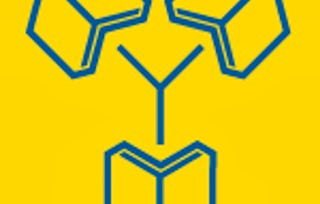This course introduces the fundamentals of Object-Oriented Programming (OOP) in Python, a paradigm widely adopted for structuring complex software. It begins with an explanation of what OOP is and why it is popular, followed by the core principles of OOP: inheritance, polymorphism, encapsulation, and abstraction. Students will also learn how to document classes and methods professionally. The course concludes with practical case studies, allowing learners to apply these concepts in real-world scenarios.

BiteSize Python: Object Oriented Programming

BiteSize Python: Object Oriented Programming
This course is part of BiteSize Python for Intermediate Learners Specialization

Instructor: Di Wu
Included with
12 reviews
Recommended experience
What you'll learn
Explore Object Oriented Programming in Python
Understand and apply inheritance, polymorphism, encapsulation, and abstraction
Prepare professional documentations for classes and methods
Skills you'll gain
Details to know

Add to your LinkedIn profile
5 assignments
See how employees at top companies are mastering in-demand skills

Build your subject-matter expertise
- Learn new concepts from industry experts
- Gain a foundational understanding of a subject or tool
- Develop job-relevant skills with hands-on projects
- Earn a shareable career certificate

There are 7 modules in this course
This module introduces the foundational concepts of Object-Oriented Programming (OOP). It covers the idea of OOP, focusing on how this paradigm helps structure programs through classes and objects. Learners will be guided on how to design and create a class in Python. Additionally, a general overview of the four key aspects—inheritance, polymorphism, encapsulation, and abstraction—will be provided to set the stage for more in-depth exploration in subsequent modules.
What's included
5 readings1 assignment2 ungraded labs
This module explores the concept of inheritance in Object-Oriented Programming, where a class can inherit properties and behaviors (attributes and methods) from another class. It includes a demonstration of inheritance and uses an Animal class to illustrate how a subclass can inherit features from a parent class. Further understanding of inheritance will be developed through case studies featuring the Person, Animal, and Vehicle classes.
What's included
1 reading1 assignment3 ungraded labs
This module focuses on the concept of polymorphism, which allows objects of different classes to be treated as instances of the same class through a shared interface. It includes a demonstration of polymorphism and showcases examples such as Family Tree, Animal, and Vehicle classes to highlight how different subclasses can override or share methods. Case studies featuring Employee, Shape, and Appliance classes will deepen learners' understanding of polymorphism in practical applications.
What's included
1 reading1 assignment5 ungraded labs
This module introduces the concept of encapsulation, a core principle of Object-Oriented Programming that restricts access to certain components of an object while exposing others. It includes a demonstration of how encapsulation works in Python, along with real-life examples such as a bank account, student grades, and a car engine. Case studies featuring Employee, Book, and Movie classes will further demonstrate how encapsulation protects data and organizes access.
What's included
1 reading1 assignment5 ungraded labs
This module covers the concept of abstraction, which simplifies complex systems by showing only the essential details and hiding the implementation. It includes a demonstration of abstraction in Python and provides examples such as Vehicles, Payment, and File Handling to illustrate how abstraction works in practice. Case studies featuring the Animal and Shape classes will help learners deepen their understanding of how abstraction is applied in Object-Oriented Programming.
What's included
1 reading5 ungraded labs
This module focuses on the importance of documentation in programming, specifically in the context of Object-Oriented Programming (OOP). It explains what documentation is and how it enhances code readability and maintainability. Learners will explore best practices for writing professional documentation for classes and methods in Python. The module includes an example of a Book class with comprehensive documentation to illustrate effective practices.
What's included
1 reading1 assignment2 ungraded labs
This optional module offers a series of guided case studies designed to review and apply the key concepts covered throughout the course. You will explore practical scenarios that combine all object-oriented programming (OOP) concepts explored in the course: inheritance, polymorphism, encapsulation, abstraction, and documentation.
What's included
6 ungraded labs
Earn a career certificate
Add this credential to your LinkedIn profile, resume, or CV. Share it on social media and in your performance review.
Instructor

Offered by
Explore more from Data Analysis
 Status: Free Trial
Status: Free Trial Status: Free Trial
Status: Free Trial Status: Free Trial
Status: Free TrialUniversity of Michigan
Why people choose Coursera for their career

Felipe M.

Jennifer J.

Larry W.

Chaitanya A.
Learner reviews
- 5 stars
58.33%
- 4 stars
33.33%
- 3 stars
8.33%
- 2 stars
0%
- 1 star
0%
Showing 3 of 12
Reviewed on Mar 7, 2025
Very good course -- straight forward instruction/learning.
Reviewed on Oct 27, 2025
No videos and insufficient demonstration via assignments.

Open new doors with Coursera Plus
Unlimited access to 10,000+ world-class courses, hands-on projects, and job-ready certificate programs - all included in your subscription
Advance your career with an online degree
Earn a degree from world-class universities - 100% online
Join over 3,400 global companies that choose Coursera for Business
Upskill your employees to excel in the digital economy
Frequently asked questions
To access the course materials, assignments and to earn a Certificate, you will need to purchase the Certificate experience when you enroll in a course. You can try a Free Trial instead, or apply for Financial Aid. The course may offer 'Full Course, No Certificate' instead. This option lets you see all course materials, submit required assessments, and get a final grade. This also means that you will not be able to purchase a Certificate experience.
When you enroll in the course, you get access to all of the courses in the Specialization, and you earn a certificate when you complete the work. Your electronic Certificate will be added to your Accomplishments page - from there, you can print your Certificate or add it to your LinkedIn profile.
Yes. In select learning programs, you can apply for financial aid or a scholarship if you can’t afford the enrollment fee. If fin aid or scholarship is available for your learning program selection, you’ll find a link to apply on the description page.
More questions
Financial aid available,


